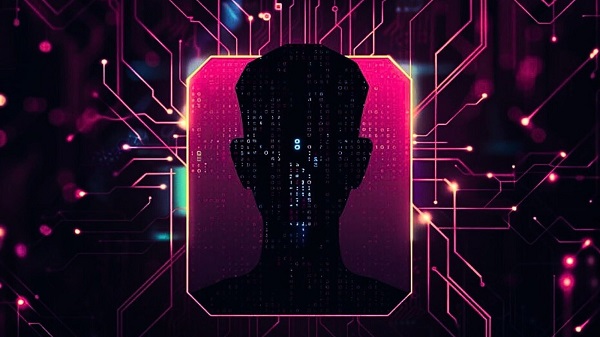Digital ID
Lawmakers advancing digital ID in effort to establish mass surveillance

Digital ID Schemes Make Strides in Congress Despite Rights Advocate Opposition
|
|
Business
‘Great Reset’ champion Klaus Schwab resigns from WEF

From LifeSiteNews
Schwab’s World Economic Forum became a globalist hub for population control, radical climate agenda, and transhuman ideology under his decades-long leadership.
Klaus Schwab, founder of the World Economic Forum and the face of the NGO’s elitist annual get-together in Davos, Switzerland, has resigned as chair of WEF.
Over the decades, but especially over the past several years, the WEF’s Davos annual symposium has become a lightning rod for conservative criticism due to the agendas being pushed there by the elites. As the Associated Press noted:
Widely regarded as a cheerleader for globalization, the WEF’s Davos gathering has in recent years drawn criticism from opponents on both left and right as an elitist talking shop detached from lives of ordinary people.
While WEF itself had no formal power, the annual Davos meeting brought together many of the world’s wealthiest and most influential figures, contributing to Schwab’s personal worth and influence.
Schwab’s resignation on April 20 was announced by the Geneva-based WEF on April 21, but did not indicate why the 88-year-old was resigning. “Following my recent announcement, and as I enter my 88th year, I have decided to step down from the position of Chair and as a member of the Board of Trustees, with immediate effect,” Schwab said in a brief statement. He gave no indication of what he plans to do next.
Schwab founded the World Economic Forum – originally the European Management Forum – in 1971, and its initial mission was to assist European business leaders in competing with American business and to learn from U.S. models and innovation. However, the mission soon expanded to the development of a global economic agenda.
Schwab detailed his own agenda in several books, including The Fourth Industrial Revolution (2016), in which he described the rise of a new industrial era in which technologies such artificial intelligence, gene editing, and advanced robotics would blur the lines between the digital, physical, and biological worlds. Schwab wrote:
We stand on the brink of a technological revolution that will fundamentally alter the way we live, work, and relate to one another. In its scale, scope, and complexity, the transformation will be unlike anything humankind has experienced before. We do not yet know just how it will unfold, but one thing is clear: the response to it must be integrated and comprehensive, involving all stakeholders of the global polity, from the public and private sectors to academia and civil society …
The Fourth Industrial Revolution, finally, will change not only what we do but also who we are. It will affect our identity and all the issues associated with it: our sense of privacy, our notions of ownership, our consumption patterns, the time we devote to work and leisure, and how we develop our careers, cultivate our skills, meet people, and nurture relationships. It is already changing our health and leading to a “quantified” self, and sooner than we think it may lead to human augmentation.
How? Microchips implanted into humans, for one. Schwab was a tech optimist who appeared to heartily welcome transhumanism; in a 2016 interview with France 24 discussing his book, he stated:
And then you have the microchip, which will be implanted, probably within the next ten years, first to open your car, your home, or to do your passport, your payments, and then it will be in your body to monitor your health.
In 2020, mere months into the pandemic, Schwab published COVID-19: The Great Reset, in which he detailed his view of the opportunity presented by the growing global crisis. According to Schwab, the crisis was an opportunity for a global reset that included “stakeholder capitalism,” in which corporations could integrate social and environmental goals into their operations, especially working toward “net-zero emissions” and a massive transition to green energy, and “harnessing” the Fourth Industrial Revolution, including artificial intelligence and automation.
Much of Schwab’s personal wealth came from running the World Economic Forum; as chairman, he earned an annual salary of 1 million Swiss francs (approximately $1 million USD), and the WEF was supported financially through membership fees from over 1,000 companies worldwide as well as significant contributions from organizations such as the Bill & Melinda Gates Foundation. Vice Chairman Peter Brabeck-Letmathe is now serving as interim chairman until his replacement has been selected.
Censorship Industrial Complex
China announces “improvements” to social credit system

 MxM News
MxM News
Quick Hit:
Beijing released new guidelines Monday to revamp its social credit system, promising stronger information controls while deepening the system’s reach across China’s economy and society. Critics say the move reinforces the Communist Party’s grip under the banner of “market efficiency.”
Key Details:
- The guideline was issued by top Chinese government and Communist Party offices, listing 23 measures to expand and standardize the social credit system.
- It aims to integrate the credit system across all sectors of China’s economy to support what Beijing calls “high-quality development.”
- Officials claim the new framework will respect information security and individual rights—despite growing global concerns over surveillance and state overreach.
Diving Deeper:
China is doubling down on its social credit system with a newly issued guideline meant to “improve” and expand the controversial surveillance-driven program. Released by both the Communist Party’s Central Committee and the State Council, the document outlines 23 specific measures aimed at building a unified national credit system that will touch nearly every corner of Chinese society.
Framed as a tool for “high-quality development,” the guideline declares that credit assessments will increasingly shape the rules of engagement for businesses, government agencies, and individual citizens. The system, according to the National Development and Reform Commission (NDRC), has already played a role in shaping China’s financial services, government efficiency, and business environment.
Critics of the social credit system have long warned that it serves as an instrument of authoritarian control—monitoring citizens’ behavior, punishing dissent, and rewarding obedience to the Communist Party. By integrating credit data across all sectors and enforcing a “shared benefits” model, the new guideline appears to entrench, not ease, the Party’s involvement in everyday life.
Still, Beijing is attempting to temper foreign and domestic concerns over privacy. The NDRC emphasized that the system is being built on the “fundamental principle” of protecting personal data. Officials pledged to avoid excessive data collection and crack down on any unlawful use of information.
-

 2025 Federal Election1 day ago
2025 Federal Election1 day agoTrump Has Driven Canadians Crazy. This Is How Crazy.
-

 2025 Federal Election2 days ago
2025 Federal Election2 days agoCarney’s Hidden Climate Finance Agenda
-

 2025 Federal Election1 day ago
2025 Federal Election1 day agoThe Anhui Convergence: Chinese United Front Network Surfaces in Australian and Canadian Elections
-

 2025 Federal Election1 day ago
2025 Federal Election1 day agoStudy links B.C.’s drug policies to more overdoses, but researchers urge caution
-

 Automotive14 hours ago
Automotive14 hours agoHyundai moves SUV production to U.S.
-

 2025 Federal Election2 days ago
2025 Federal Election2 days agoConservatives promise to ban firing of Canadian federal workers based on COVID jab status
-

 International2 days ago
International2 days agoPope Francis Got Canadian History Wrong
-

 2025 Federal Election2 days ago
2025 Federal Election2 days agoWhen it comes to pipelines, Carney’s words flow both ways




